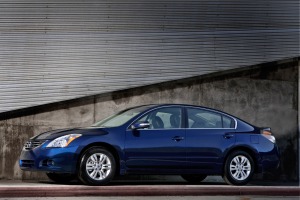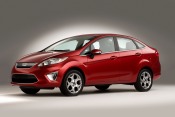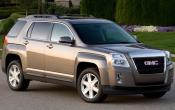The True Cost of Powering an Electric Car
Focus on Low Kilowatt-Hours, Not Cost Per Gallon
What if a gallon of gasoline cost $2 in the middle of the night, was free at lunch and set you back $8 in the afternoon? Welcome to the world of electric cars. If you buy one, the cost of a fill-up will largely depend on when and where you recharge it, not to mention the rates your utility company offers.
In the U.S., the cost of electricity varies far more widely than the cost of gasoline, from a kilowatt-hour average of 8 cents in Washington state to 36 cents in Hawaii (a kilowatt-hour (kWh) is the amount ... Back to article







All Article Comments
7 comments
By tomm250
on 12/21/10
8:10 AM PST
One more thing to consider is the use of solar systems to produce your own electricity to power your car. Many people that have had an electric car have then added a solar array to their home. After a few months with the MINI-E I realized that I would be driving electric from now on so I installed a solar array that powers my home and fuels my car. Edmunds chose not to introduce solar to this discussion because it really complicates the cost analysis. While I do pay .18/kWh when I charge at home, my solar array produces about 90% of my total electric use of my home and my car charging. When I charge at work a lot in a month, my electricity bill is negative(banked kWh's for future use). The article uses Hawaii's high electricity cost of .36/kWh but Hawaii is a perfect place for solar PV systems and since the islands are small, it is also the perfect place for an EV because most people would be hard pressed to drive 100 miles in a day on a Hawaiian island so the limited range is really taken out of the equation.
Recommend (2) (0)
Report It
By PaulScott
on 12/21/10
11:12 AM PST
Thanks to Carroll Lachnit for the best article I've seen to date on the costs of charging an EV. And Tomm250 is correct that adding solar PV to the EV equation - EV/PV - makes for a compelling economic argument in favor of EVs. I would only add that these cost comparisons as described leave out the huge external costs of using dirty energy, primarily oil, but also coal and natural gas for generating electricity. When all the costs are included, the EV is vastly superior to internal combustion in all categories save range, and range is a non-issue in over 90% of American's driving.
Recommend (2) (0)
Report It
By bejoyce
on 12/21/10
1:09 PM PST
While it may be true that electricity costs more in Hawaii, so does everything else, from orange juice to gasoline. It may cost more to power an electric car in Hawaii, but believe me, it costs *A*LOT* to power an ICE (internal combustion engine) car in Hawaii, as well. Failure to mention this little fact makes this article misleading.
Recommend (2) (0)
Report It
By usafang67
on 01/11/11
3:41 AM PST
Sticker shock when you buy and EV and a even great shock when you decide to trade this White Elephant in when the warranty on the battery bank is near or past it's warranty. What sane person is going to want to buy one of these EV's when they know the cost of replacing the battery bank? Guess who is going to take the hit when you trade your EV in? It sure won't be the dealer! So much for all that money you saved at the pump :-( PS You are stuck with going to the dealer to have these beast service. I think I'd rather have a root canal!
Recommend (1) (0)
Report It
By davidm10
on 01/18/11
2:36 PM PST
And you don't even get to those of us less-fortunates who must pay the $0.42 to $0.46 PG&E charges for Tier 4 and Tier 5 in northern California! We are on Tier 4 throughout much of the year, and in the Summer with our 100+ temps we have enough air conditioning cost to get heavily into Tier 5. Running an EV a those prices is roughly equivalent to my having to pay $12/gallon for gas in my Lincoln MKZ. Guess what I won't be buying?
Recommend (0) (0)
Report It
By don_ca
on 01/18/11
7:41 PM PST
don_ca says: 07:35 PM, 01/18/11 Good article about the true cost of operating an electric vehicle. But not much has been said about how to keep eCars going when production starts ramping up. Ever notice how the market reacts to consumer use. Our electric grid is antiquated and runs quite close to its maximum output. Only limited expansion to the grid is underway. What happens on a hot day when everyone plugs in there car and there is not enough electricity to run air conditioners and computers? We have rolling brown or black outs now! The price of electricity will jump and it will take TIME for the grid to come in line with the increased demand, if it can catch up. What will the MPHe be then? Hopefully the air, heat, and solid waste pollution generated from the new large electricity generating systems that will be needed will be better than running gasoline engines, but the balance of all these systems does not seem to be well understood yet. Being GREEN may not be so green.
Recommend (2) (0)
Report It
By iisi50mhz
on 04/05/11
4:29 PM PST
Seems like kWh/100m should be kWh per 100 meters. Try "kWh/100 mi." instead.
Recommend (0) (0)
Report It